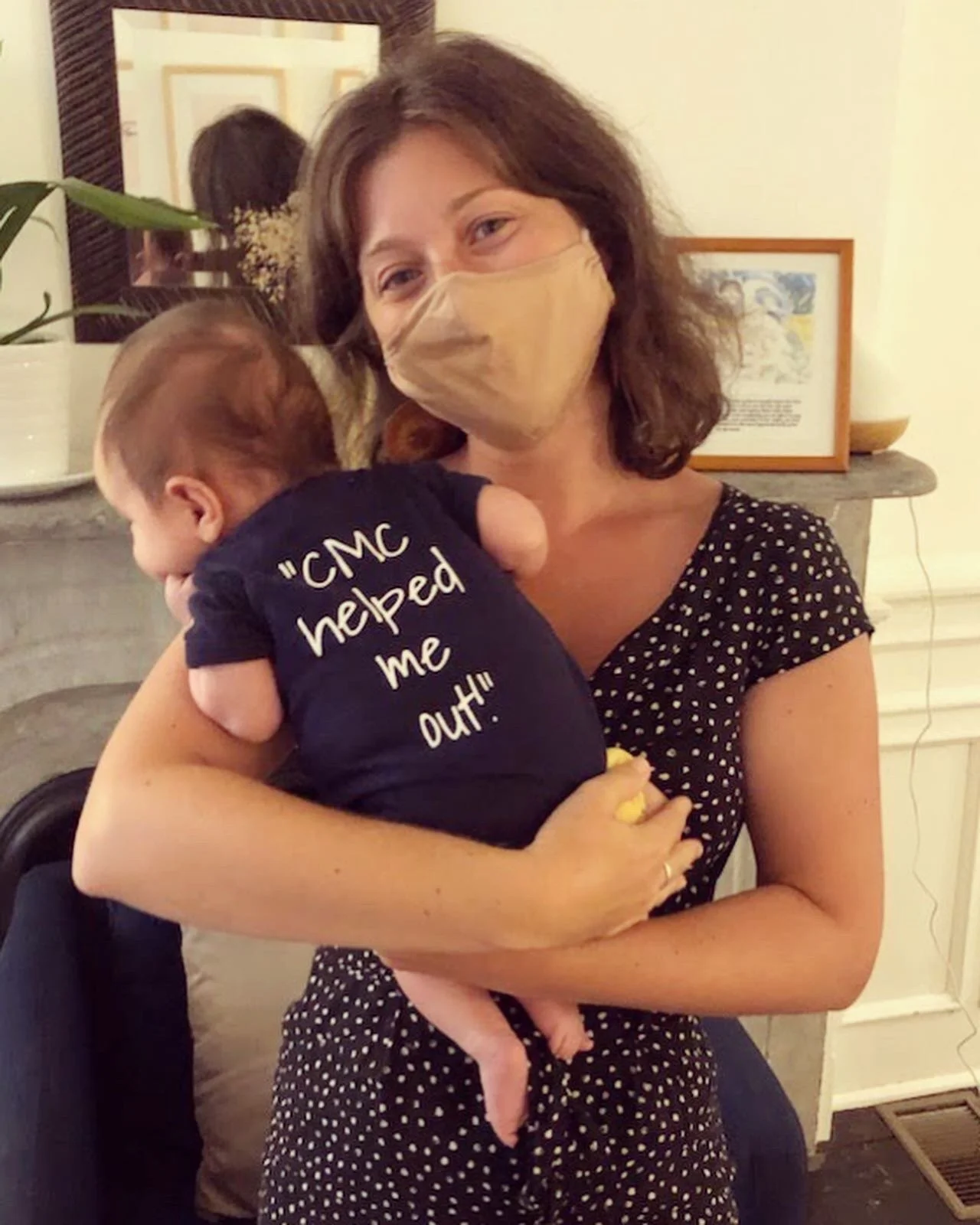An interview with Community Midwifery Care's Gina Eichenbaum-Pikser
Gina Eichenbaum-Pikser is the founder of Community Midwifery Care, a Brooklyn-based midwifery practice serving families since 2016. She offers prenatal care, fertility and conception counseling, gynecologic care, and attends births at Mount Sinai West Hospital. Her practice is queer and gender nonconforming friendly.
Gina offers such a special approach to her work, believing that because no two families are the same, neither should their care be. Baby Caravan has loved having her in our community for many years and we would love you to get to know her as well!
Baby Caravan: Can you tell us about your work as a private practice midwife and what a typical day or two looks like for you?
Gina: Part of what I love most about being a private practice midwife is there really is no such thing as a typical day. I have office hours one day per week, which is when I see clients for prenatal, postpartum, gynecology, or fertility visits. The rest of the week is spent waiting for babies to decide to come and meeting clients at the hospital to care for them in labor. That means I get a lot of time with my toddler, which I’m very grateful for. And sometimes it means I’m away from home for days in a row, if there is a long labor or if two people have their babies one right after the other.
Baby Caravan: What is the midwifery model of care and how is it unique to midwifery?
Gina: I think there are probably as many different answers to this question as there are midwives. To me, the core of the midwifery model of care is a deep respect for our clients’ humanity and placing a premium on the connection between client and provider. Our job is to care for whole people -- whole families -- rather than just treat a particular ailment or diagnose pathology (though we do that too, sometimes.)
Practically speaking, this means midwives value educating our clients, talking through various decisions, helping them make the best choice for themself and their family in any given moment.
Midwives are experts in low-risk, physiologic pregnancy, birth, and postpartum. The midwifery model of care treats these events as normal, exciting, and transformative processes, rather than as emergencies waiting to happen; while, at the same time, carefully monitoring for the development of high risk conditions. The midwifery model of care recognizes the importance not only of the client’s physical health but also their emotional and social health. It respects the client’s autonomy in decision making, centering a “shared” decision making process, rather than a hierarchical/patriarchal one.
And, lastly (though I could go on about this at length), the midwifery model of care trusts that by and large our bodies know how to safely grow and birth our babies. Midwives are very good at sitting on our hands -- waiting and watching --- ready, but not eager, to intervene.
Baby Caravan: What do you love the most about running a practice?
Gina: I love the freedom it affords me to be able to provide the kind of care I think is best. Prenatal visits can be as long as I want them to be so no one feels rushed or unheard. I’ve developed my own educational materials that get sent out to clients at various points in the pregnancy to further supplement prenatal visits.
I’ve also set up “seasonal cohorts” --- introducing all of my clients due around the same time to each other so they can form a prenatal/new parent support group if they’d like.
My office is set up to feel cozy and personal, no fluorescent lights or paper gowns. All of these things are really only possible because I run my own practice.
Baby Caravan: A lot of people may think that you work only in birth centers and homes, but you in fact support families in hospitals a lot of the time, correct? How does your role differ from that of a doctor employed through the hospital and what is your partnership with the hospital like?
Gina: I only attend births in a hospital (Mt Sinai West). When a client of mine is in labor I meet them at the hospital, do their initial evaluation, admit them if it’s time and then stay with them throughout the labor, birth, and immediate postpartum. A nurse from the hospital is with us. As long as the labor is uncomplicated, no one else will be involved in the birth; I will catch the baby with the assistance of the nurse. Should complications arise, there are hospital-employed OBs on the labor and delivery floor who I can consult with or transfer care to should a cesarean be necessary.
Want to speak with Gina about your upcoming birth? You can find her at Community Midwifery Care and on Instagram at community_midwifery.



